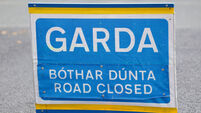Landlords will have to reveal how much rent they charge tenants

Government sources say that the introduction of the rent register will help provide more transparency of rent prices across the country. Picture: iStock
The Government is to introduce new laws that would require landlords to disclose the amount of rent charged to tenants, as part of a slate of reforms to the Residential Tenancies Board (RTB).
The legislation will provide for the establishment of a new rent price register, similar to the Property Price Register that tracks the sale of homes.














